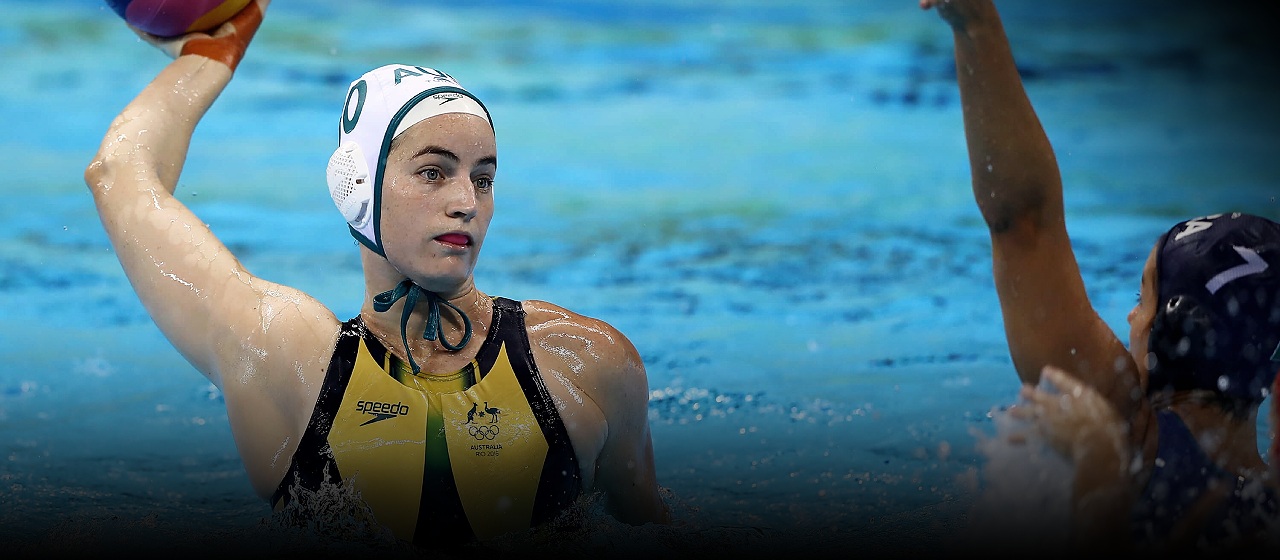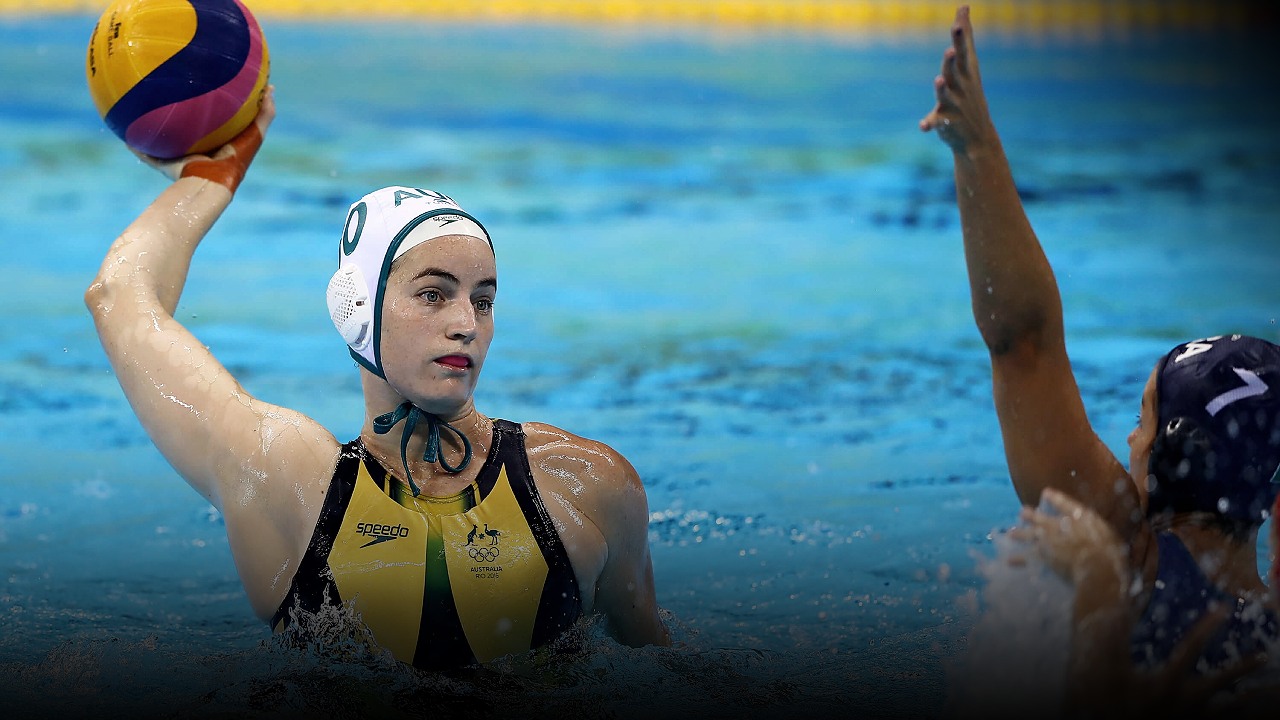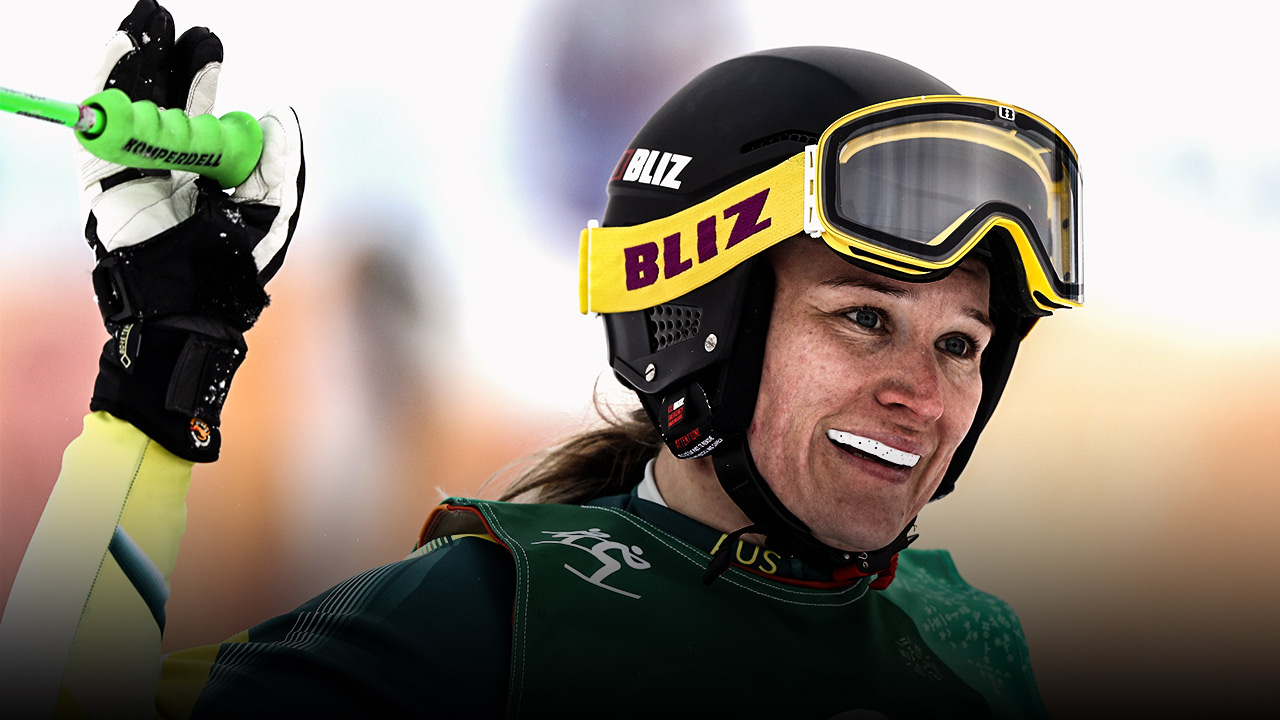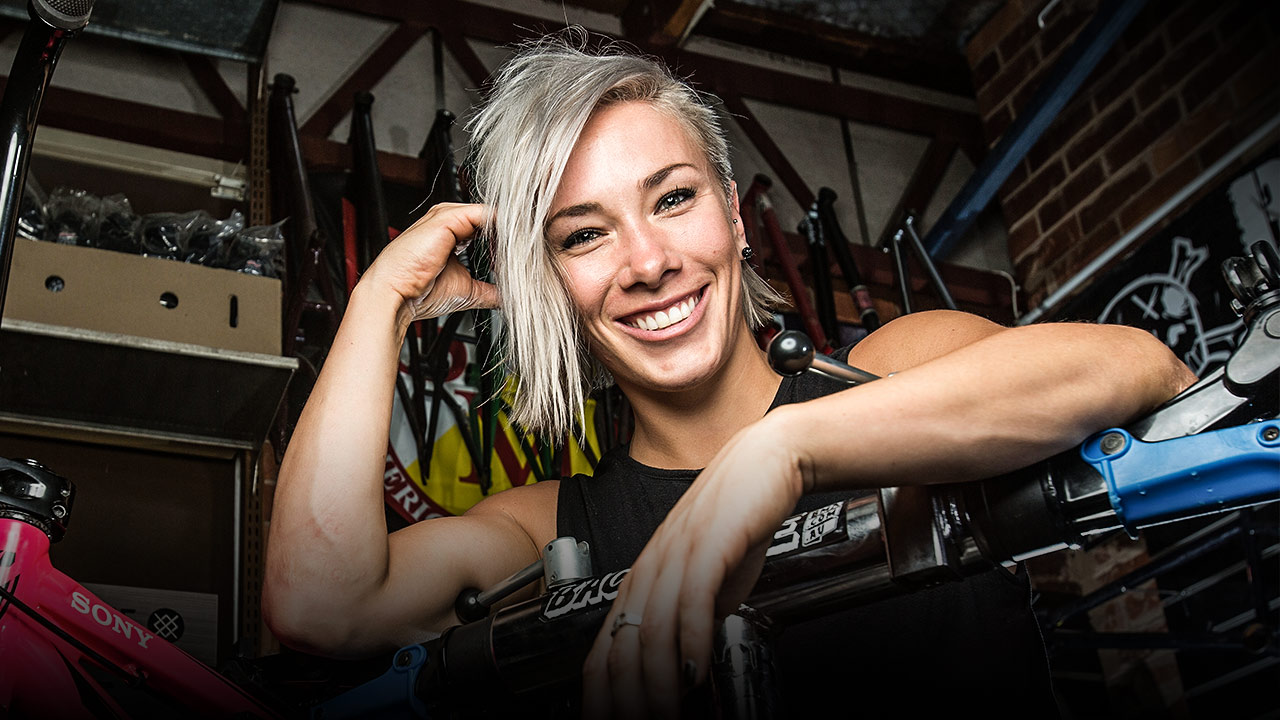AIS
A small-town country girl who became an Olympian
Most successful sportspeople have parents who support their dreams. Mine went the extra miles and miles.
They drove us on four-hour round trips almost every weekend for seven years, installed a backyard swimming pool to train in and bought a second house in Townsville to help me pursue my Olympic Games dream.
I grew up in Cardwell, a small town of around 1300 people two hours north of Townsville. Like a lot of similar places, we had a pool and an oval and that’s pretty much it. We didn’t really have enough kids for sporting teams so we had to travel to experience that.
I didn’t really enjoy swimming but I was a member of the swim club. There were about ten of us in it and we were doing it every afternoon after school.
One time, our primary school PE teacher took a team down to Townsville for FlippaBall, a modified version of water polo.
We won the first year and got a few into a squad to train on. Townsville water polo wasn’t big at the time but they’d just got a new development officer from Brisbane and were trying to build it up. We were the first group to come through.
I was ten and played any sport I could. I guess my hand-eye coordination was good and I was a strong swimmer.
My brother Trevor, who’s a year older than me, also got selected and that made it easier from a family perspective to tackle the weekly drives – 165 kilometres each way – from when I was ten until I moved to Brisbane at 17.
My parents sacrificed a lot. Put a lot of their lives on hold for us. My sister Alex was five years older and had moved to Townsville and then my parents bought a house there so we could stay there on weekends.
Long high-school days
At the start I loved it but I found it tougher when I went to high school. I felt the distance was an issue that might affect my chances and I remember having a lot of fights with mum about wanting to go to boarding school.
I was going to high school at Gilroy Santa Maria College in Ingham – 50 minutes away on the bus and 65 kilometres from home. Getting on the bus at 6.30am, going to school all day, coming home, swimming – they were my long days.
My Townsville coach, Debbie Powell, who played for Australia before the 2000 Olympics, was really supportive. She was a great mentor, not only for me but for my parents. She kept them in the loop and helped them to mentor me as an athlete.
I was still living in Cardwell when I debuted for the Australian senior team at 16. It’s nice to look back on that achievement and sacrifice but I remember finding it really hard to transition into state and national squads being up there.
But I couldn’t have had better support from the Queensland Academy of Sport.
My parents sacrificed a lot. Put a lot of their lives on hold for us.
At 16, I had the Australian water polo head coach Greg McFadden fly up to Cardwell along with the QAS coach Aleks Osadchuk and the Athlete Career and Education (ACE) advisor from the QAS to see the conditions of where I was training at school.
For my last year of high school, they put in a training program so I was able to keep up with everyone else for the remainder of the year before I moved to Brisbane.
In a sense, being the only elite athlete at my school made it difficult to motivate myself because of my surroundings and what I had access to, although my school collected some old weights for me to use at lunchtime.
Because it was my own experience, I didn’t know any differently until I went to Brisbane and saw what everyone had access to. It motivated me and while it made me realise the kind of life I was living, looking back I wouldn’t have changed it at all.
Maybe had I gone to boarding school I might have burned out and never made it. You never know. It kept me grounded.
I think my parents resisted boarding school because they wanted me around. They probably realised once I was moving out I was not coming back so they tried to keep me as long as possible.
Debbie Powell may have suggested not to let me go either to allow me to develop up north first, let me be a kid and then go from there.
I spent more time with my teammates than my family
I moved down after school and went straight into the QAS program. Aleks Osadchuk really helped me with the transition from being a small-town country girl into a national team player.
Trev was already down there for uni and water polo, which made it easier and we lived together.
Looking back at the time I thought the transition was the best thing ever. But in reality, it’s hard to move out at such a young age, not having much life experience.
Of course, when I entered the national set-up at 16 most of my teammates were a lot older. I was looked at as a young country kid, but everyone was really good to me and it was cool training with Olympians day in, day out.
I was star-struck at the start. In Beijing, the Olympics before I joined the program, half the team was from Queensland. So it was such a high standard in our program and I slipped straight into the mindset of wanting to improve every day and be among the best.
Aleks was really good at making us a team. I walked in and had instant friends because of that and the training.
I’d see those girls more than I’d see my family because we were training 10-12 times a week together. Even players still living with their families were seeing the rest of us more than them.
We’d do some cool things together as a squad. For example, we’d go and do the swim leg of the Noosa Triathlon every year as part of a camp.

Finding the right balance
I learned how to cook pretty quickly and the QAS were super supportive. They’d make us see nutritionists regularly, take cooking classes and they’d send us to the ACE advisors to talk about our career and education.
I didn’t go straight into studying. I was focused on training and playing and found it hard to even contemplate uni with so much travel.
I didn’t love school. I just wanted to play water polo. In that way, I was probably like most kids. The first few years I would have struggled to adjust to study and sport.
I was quite shy when I moved and I don’t think I would have handled the load. I wanted to enjoy travelling with the sport for a few years and giving it my all. But straight after the London Olympics I realised I needed balance in my life.
The QAS ensured that we would meet up with an ACE advisor and let them know what we were doing outside of sport. He put me in contact with Naomi McCarthy, a member of the 2000 Olympic gold medal water polo team, who works on the sports program at Griffith University.
Naomi got me thinking about university and then mentored me as I did my three-year bachelor in business, sports management and marketing over five years.
Without her, I’m not sure I could have done it. I remember one time I was in China and having to sit an exam and she was incredible helping me out with that.
We were travelling so often and being in places with average internet, you’d have to be very well organised.
When I was back in Brisbane I’d have to make myself known to my tutors and get the work for when I’d be away, get extra time for assignments. It was really hard with group assessments – I ended up trying to pick subjects that didn’t have them or I’d have to do them on my own.
Having Naomi in that role was amazing. It would be hard to manage without people like her. You have to put in the work as the athlete, they won’t give you their time if you’re stuffing around.
But you just have to be open and honest, get your work in while you can.
It was a hard slog but balancing life and study helped me switch off from water polo if I had a bad day there.
I don’t like hearing athletes say they didn’t have time to study when we have the facilities and support that we have there.

Out of the pool, into the workforce
Even if you have studied, the transition from a sport like water polo to the workforce can be difficult.
Since the Rio Olympics, I have been involved in a case study about transitioning with the AIS. They’re trying to put plans in place on how to help athletes.
It’s super hard. I’m 27 now and didn’t have much work experience until the past two years. I can appreciate the plans they’re now putting in place to help athletes get set up in their fields.
On reflection, I feel for all athletes post-Olympics and urge them to reach out and get support themselves.
It’s hard as an athlete to go straight into life and not feel supported and it’s great they are trying to address this.
I did few internships when I moved to Sydney; a marketing role at a financial firm and then an internship with the Waratahs doing marketing, media and PR, which I found really cool.
Now I’m using the sports management more, working as an administrator at an all-girls school in Sydney, doing admin and coordinating sport and running carnivals.
There’s a lot more support out there than there was when I came out of school. I’ve realised that school is a lot more important and sport is there to balance it all out.
More about: AIS | Olympic Games | Water Polo






 Load More
Load More